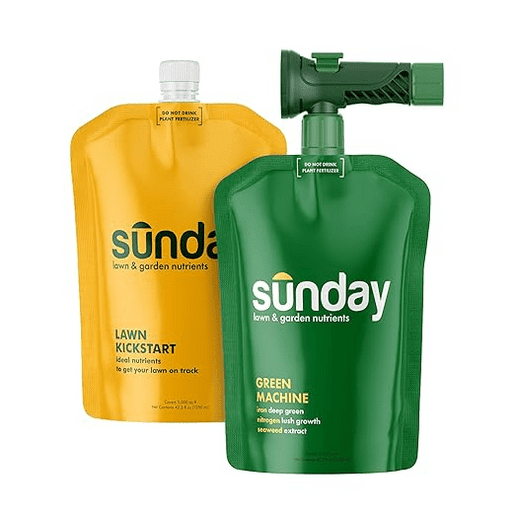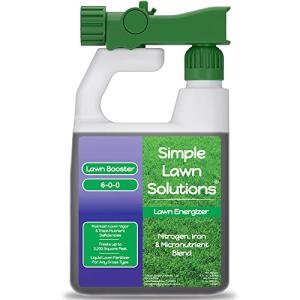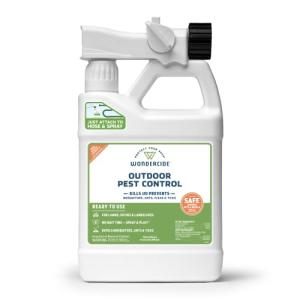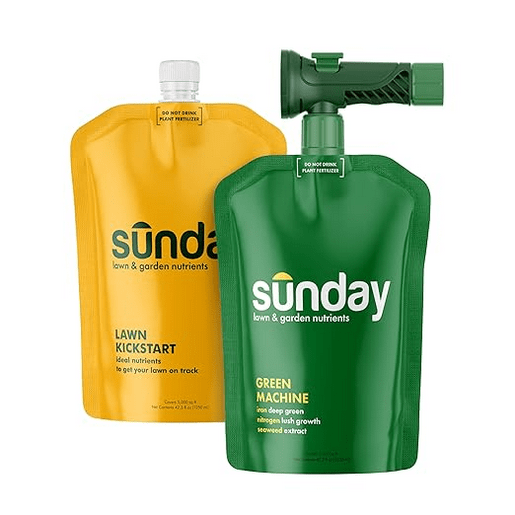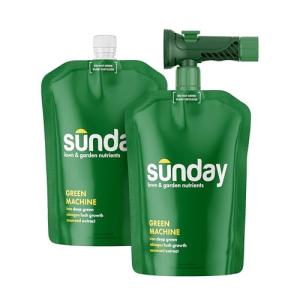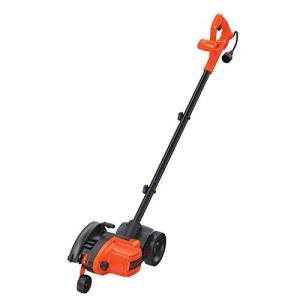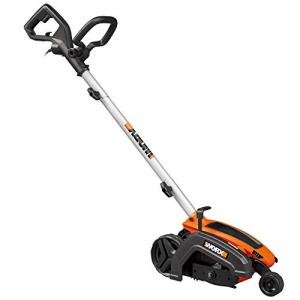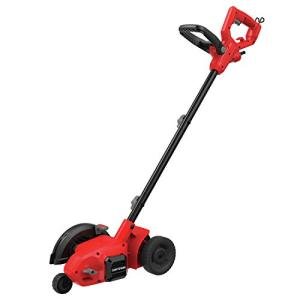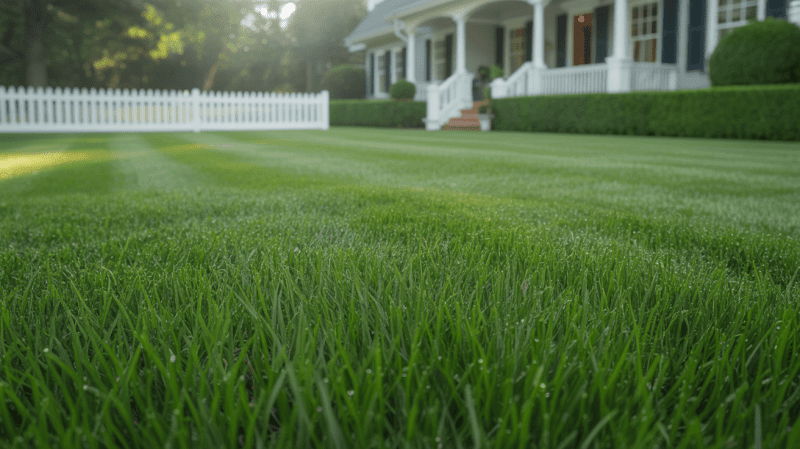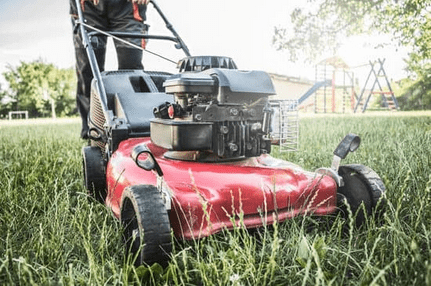Natural Solutions for a Thriving Lawn and Garden:
Keeping your lawn and garden healthy can be tough, thanks to pests that harm plants and can be harmful to health. Our gardening community shared valuable tips from their eco-friendly DIY garden hacks contest. They showed us their best hacks for natural fertilizers and effective pest control methods.
To keep your outdoor space thriving, you need effective and eco-friendly methods. This article will look at various organic and natural pest control solutions for your lawn and garden. We'll cover biological and microbial methods, DIY remedies, and commercial products to meet your needs.
Key Takeaways
- Effective lawn and garden pest control methods
- Natural and organic pest control solutions
- Biological and microbial pest control methods
- DIY remedies for pest control
- Commercial pest control products
Understanding Garden Pests and Their Impact
As I care for my garden, I always watch out for pests. They can harm my plants. The best way to stop them is to keep them away before they arrive.
A healthy garden is well-equipped to fight off pests. To keep your garden healthy, you need to know which pests are out there.
Common Destructive Insects in American Gardens
In American gardens, aphids, whiteflies, and spider mites are big problems. They can really hurt your plants if you don't stop them.
| Pest | Damage | Control Method |
|---|---|---|
| Aphids | Suck plant sap, causing curled or distorted leaves | Insecticidal soap or neem oil |
| Whiteflies | Feed on plant sap, causing yellowing or stunted growth | Yellow sticky traps or insecticidal soap |
| Spiper Mites | Cause yellowing or bronzing of leaves | Neem oil or horticultural oil |
Signs of Pest Infestation in Your Lawn and Plants
It's important to spot pest signs early. Look for holes in leaves, discolored leaves, or eggs and larvae. This helps you act fast to stop more damage.
Liquid Lawn Fertilizer with Iron for Greener Grass
Get lush green grass quickly and easily with our liquid fertilizer packed with essential nutrients
Product information
$24.77
Product Review Score
4.97 out of 5 stars
89 reviewsProduct links
Natural and Organic Pest Control Solutions
I've found that organic pest control works well in my garden. It cuts down the need for harmful chemicals. These methods are safe and good for the planet.
1. Beneficial Insects as Natural Predators
Beneficial insects like ladybugs and lacewings eat pests. To draw them in, I plant a variety of flowers and herbs. They give these insects food and a place to hide.
How to Attract and Maintain Beneficial Insects
To attract beneficial insects, try planting:
- Marigolds, which repel nematodes
- Dill, which attracts lacewings
- Sunflowers, which provide shelter
2. Neem Oil Applications
Neem oil, derived from the neem tree, effectively kills pests. It's great for fighting aphids, whiteflies, and spider mites.
Proper Mixing and Application Techniques
To use neem oil correctly, mix it with water as the label says. Spray it on pests in the morning or evening. This helps avoid harming good bugs.
3. Diatomaceous Earth for Crawling Pests
Diatomaceous earth is a powder from ancient algae. It dries out pests like slugs and snails. It's safe and works well.
Safe Application Methods for Maximum Effectiveness
Spread diatomaceous earth around plants to fight pests. Reapply after it rains. Always wear a mask when using it.
4. Companion Planting Strategies
Companion planting means growing plants together to keep pests away. For example, basil with tomatoes keeps aphids off.
Best Plant Combinations for Pest Deterrence
Some good pairs for fighting pests are:
- Marigolds with tomatoes to deter nematodes
- Basil with tomatoes to repel aphids
- Radish with cucumbers to deter cucumber beetles
Natural Outdoor Pest Control Spray - 32oz
Keep your garden thriving and free from pesky bugs with this effective natural pest control spray
Product information
$37.99
Product Review Score
4.95 out of 5 stars
30 reviews
Product links
Natural Outdoor Pest Control Spray - 32oz
Keep your garden thriving and free from pesky bugs with this effective natural pest control spray
Product information
$37.99
Product Review Score
4.95 out of 5 stars
30 reviewsProduct links
Biological and Microbial Pest Control Methods

Biological and microbial pest control methods are good for the environment. They use living things or their products to fight pests. This is a better choice than chemical pesticides.
5. Bacillus Thuringiensis (Bt) for Caterpillar Control
Bacillus thuringiensis (Bt) is a bacterium that kills certain insects. It's great for controlling caterpillars. Bt products are easy to find and can be applied directly to plants.
When and How to Apply Bt Products
Apply Bt products when caterpillars are eating. Make sure to cover the plants well. This way, Bt can work by being eaten. You might need to apply it again to keep the caterpillars away.
6. Beneficial Nematodes for Soil-Dwelling Pests
Beneficial nematodes are tiny worms that kill pests in the soil. They are good for fighting grubs and weevil larvae.
Application Timing and Soil Conditions
Apply beneficial nematodes to moist soil in the morning or evening. This helps them avoid damage from sunlight. Check the product instructions for the best soil temperature and moisture levels.
7. Milky Spore for Japanese Beetle Management
Milky spore is a bacterium that kills Japanese beetle larvae. It provides long-term control when used right. It's great for managing Japanese beetles over a big area.
Long-Term Benefits and Application Schedule
Milky spore can control pests for years after application. Follow the recommended schedule, usually in late summer or early fall. This is when Japanese beetle larvae are most active.
| Method | Target Pest | Application Timing |
|---|---|---|
| Bacillus Thuringiensis (Bt) | Caterpillars | When caterpillars are actively feeding |
| Beneficial Nematodes | Soil-dwelling pests (grubs, weevil larvae) | Early morning or evening, moist soil |
| Milky Spore | Japanese Beetle Larvae | Late summer or early fall |
Top 10 Pest Control Solutions For Lawn And Garden: Chemical Options

Chemical pest control is sometimes needed for effective lawn and garden care. These chemicals can tackle severe pest problems that natural methods can't handle alone. They should be used wisely.
8. Insecticidal Soaps for Soft-Bodied Insects
Insecticidal soaps are a mild pesticide for soft-bodied insects like aphids and spider mites. They work by breaking down the insect's cell membranes, causing death.
DIY Recipes and Commercial Products
You can buy insecticidal soap products or make your own. Mix mild dish soap with water. But, homemade recipes can be tricky to get right.
9. Horticultural Oils for Scale and Mite Control
Horticultural oils control scale, mites, and pests by suffocating them. They can be applied in the dormant or growing season, depending on the oil type.
Seasonal Application Guidelines
The application of horticultural oils varies by season. Dormant oils are for winter, while summer oils are for the growing season. Always follow the product's instructions for dilution and timing.
10. Targeted Synthetic Pesticides as a Last Resort
Use targeted synthetic pesticides as a last resort due to environmental concerns. They are effective but can harm beneficial insects if not used carefully.
Safety Precautions and Environmental Considerations
When using synthetic pesticides, follow safety precautions. Wear protective clothing and apply in recommended conditions to avoid drift and harm to non-target organisms.
| Chemical Option | Target Pests | Precautions |
|---|---|---|
| Insecticidal Soaps | Aphids, Mealybugs, Spider Mites | Avoid using on sensitive plants; test on a small area first |
| Horticultural Oils | Scale, Mites, Aphids | Do not apply during extreme temperatures or when plants are stressed |
| Targeted Synthetic Pesticides | Wide range of pests | Use protective gear; follow instructions carefully to minimize environmental impact. |
Implementing a Year-Round Pest Management Strategy
Being proactive in pest management can significantly reduce the likelihood of pests in your garden. Understanding the need for a year-round strategy is key.
Keeping your garden healthy is the best way to fight pests. Good garden hygiene, such as removing weeds and debris, helps prevent pest infestations. A seasonal pest control calendar is a great tool for this.
Seasonal Pest Control Calendar
A seasonal pest control calendar helps you focus on peak pest times. Spring and summer are when pests are most active.
Spring and Summer Focus Areas
- Watch for early pest signs
- Use natural and organic pest control
- Encourage good insects
Fall and Winter Preventive Measures
In fall and winter, focus on stopping pests before they start. This helps prevent infestations next year.
- Clean up garden debris
- Apply preventative treatments as needed
- Plan for the next growing season
Integrated Pest Management Principles
Integrated Pest Management (IPM) mixes different control methods for best results. It includes cultural, biological, and chemical controls.
Combining Methods for Maximum Effectiveness
For example, using beneficial insects with organic methods boosts your garden's defenses.
Looking for the best organic fertilizers for lawn and garden? You’re in the right spot! Organic fertilizers are a fantastic way to nourish your yard without all those harsh chemicals. They help improve soil health while giving your grass that vibrant, green look we all love.
One popular option is compost. It’s easy to make at home with kitchen scraps and yard waste. Just toss in fruit peels, veggie scraps, and dried leaves. You’ll have rich compost in a few months that feeds your lawn and garden plants. Plus, it’s eco-friendly!
Another great pick is fish emulsion. It’s packed with nutrients and gives your lawn an instant boost. Just mix it with water and spray it on your grass or garden. The fishy smell fades quickly, but your plants will love the nourishment.
And don’t forget about bone meal. This slow-release fertilizer delivers phosphorus, which helps with root development. It’s perfect when you’re seeding a new lawn or looking to enhance flowering plants. Just sprinkle it in and watch your blooms thrive.
For a quick fix, consider using seaweed extract. It’s rich in trace minerals and helps strengthen plants against diseases. Just mix it with your watering can and give your lawn a drink. Your grass will appreciate the care!
Boost Your Garden with Natural Nutrients
Boost your garden by using natural nutrients! If you're looking for the best organic fertilizers for lawn and garden, you've come to the right place. These fertilizers not only feed your plants but also enrich the soil. Healthy soil means happy plants, and happy plants make for a lush garden.
There are plenty of options out there that are great for the environment and your garden. Some of the top picks include:
- Compost: This is black gold for your garden. It’s packed with nutrients and improves soil structure.
- Fish Emulsion: This smelly liquid is like a power drink for plants. Just mix it with water and watch your plants thrive.
- Bone Meal: Rich in phosphorus, it helps with root development and flower production. It's a great choice for blooming plants.
- Blood Meal: If you want an immediate nitrogen boost, this one's for you. It’s intense, so use it sparingly.
Using the best organic fertilizers for lawn and garden means you’re not just feeding your plants; you’re also helping the beneficial microorganisms in your soil. It’s a win-win. Plus, you can feel good knowing you’re gardening sustainably!
Easy Ways to Choose Organic Fertilizers
Choosing the right organic fertilizer can be overwhelming, especially with the numerous options available. But don’t worry! You can find the best organic fertilizers for lawn and garden with just a few simple tips. First, think about what your plants need. Different plants have different nutrient requirements, so inspect your garden or lawn to determine which nutrients are lacking.
Next, read the labels carefully. Organic fertilizers usually come in two types: slow-release and fast-acting. Slow-release fertilizers feed your plants over time, which is great for longer-term growth. Fast-acting fertilizers provide your plants with a quick boost, ideal if you’re seeking immediate results. Knowing what you need helps narrow down your choices.
Also, consider the source of the fertilizer. Things like compost, fish emulsion, and seaweed extracts are all fantastic organic options. These natural ingredients not only provide nutrients but also improve soil health. The best organic fertilizers for lawn and garden often come from these trusted sources, so keep an eye out for them.
Lastly, don’t forget about your local soil conditions. Different soils can hold nutrients differently. A soil test can help figure out what your garden needs. Once you know your soil's needs, you can choose the right organic fertilizer to really help your plants thrive.
How to Apply Fertilizers for Best Results
Using the best organic fertilizers for lawn and garden can transform your plants and make your yard the envy of the neighborhood. But applying them the right way is key to really seeing those amazing results. Let’s break it down.
First, timing is everything. You want to apply your fertilizer during the growing season when plants are actively taking in nutrients. For most lawns, spring and early summer are prime times. For gardens, it might depend on what you’re growing, but early to mid-spring is usually perfect. Always check the specific needs of your plants!
Next up, prepare your soil. It’s like giving your fertilizer a great stage to shine! Start by clearing away any debris and loosening the top layer of soil. If you can, test your soil pH; this helps you know exactly what your plants need. Most organic fertilizers work best when your soil is a little moist, so if it's super dry, you might want to water a day or two before fertilizing.
When applying the fertilizer, follow the recommended amount on the package. More isn’t always better! Spread it evenly to avoid burning your plants with too much nitrogen or other nutrients. Use a spreader or your hands for smaller areas, but always wear gloves! Watering your plants after applying fertilizer helps to activate it and move those nutrients down to the roots where they’re needed.
Lastly, keep an eye on your plants. Look for signs of growth and health after a few weeks. If your plants are thriving, you’re doing something right! And remember, using the best organic fertilizers for lawn and garden isn’t a one-time thing. Regular applications during the growing season will keep your soil rich and your plants happy.
Conclusion
By using the top 10 pest control solutions from this article, you can protect your lawn and garden. It's important to know the pests that harm your plants. This knowledge helps you use safe pest control methods for the lawn and effective pest control for gardens.
Combining natural and organic solutions, like beneficial insects and neem oil, is key. Also, using biological and microbial methods, such as Bacillus thuringiensis, keeps your outdoor space healthy. This way, you can enjoy a beautiful and thriving area.
Having a pest management plan all year round is crucial. It helps prevent pests and reduces damage. By choosing eco-friendly pest solutions and natural pest remedies, you can also protect the environment. With the right pest control strategies for outdoor spaces, your outdoor area will be a source of joy and beauty.
Sunday Green Machine Lawn Fertilizer, 2 Pack
Give your lawn a boost with this easy-to-use, all-natural fertilizer that promotes lush, green growth
Product information
$48.00
Product Review Score
4.12 out of 5 stars
99 reviewsProduct links
FAQ
Q: What are the most common pests that can damage my lawn and garden?
A: Aphids, whiteflies, and spider mites are common pests in American gardens. They can harm plants if not controlled.
Q: How can I identify pest infestation in my lawn and garden?
A: Look for signs like holes in leaves, discolored foliage, and eggs and larvae. Spotting these early helps prevent damage.
Q: What are some natural and organic pest control solutions?
A: Natural and organic solutions include using beneficial insects, neem oil, and diatomaceous earth. Companion planting is also effective.
Q: How do beneficial insects help control pests?
A: Beneficial insects like ladybugs and lacewings eat harmful insects and their larvae. This helps control pest numbers.
Q: What is Bacillus thuringiensis (Bt) and how is it used for pest control?
A: Bacillus thuringiensis (Bt) is a bacterium that kills certain insects. It's effective against caterpillars.
Q: How can I implement a year-round pest management strategy?
A: Create a pest control calendar for each season. Use integrated pest management (IPM) principles to manage pests all year.
Q: What are some eco-friendly pest control methods for my lawn and garden?
A: Eco-friendly methods include natural pest control, biological controls, and a year-round management plan.
Q: When should I consider using chemical pest control options?
A: Use chemical options like insecticidal soaps and horticultural oils as a last resort. Always follow safety precautions to protect the environment.
Q: How can I reduce my reliance on chemical pest control options?
A: Adopt an integrated pest management (IPM) approach. This combines cultural, biological, and chemical controls to reduce chemical use.
Q: What are some effective pest control products for my lawn and garden?
A: Effective products include neem oil, diatomaceous earth, and insecticidal soaps. Horticultural oils and beneficial insects are also useful.
DISCLAIMER
This document is provided for general information purposes only and should not be relied upon as providing legal advice, technical, or specific operational guidance to the reader, whether as to the practices described in the document or the applicable legal requirements and regulations. Lawnfly.com expressly disclaims any responsibility for liability arising from or related to the use or misuse of any information in this document.
